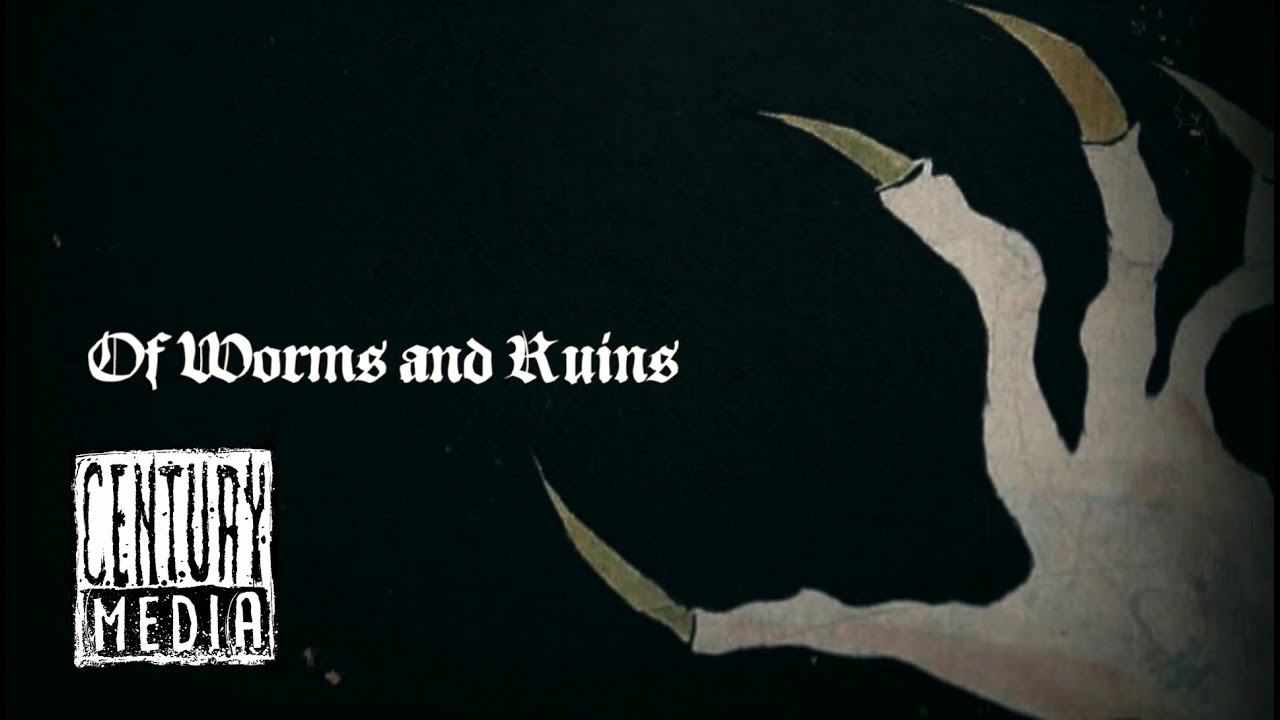In his book Horror of Philosophy Vol. 1: In The Dust of this Planet contemporary philosopher and New School professor Eugene Thacker explores the meaning of the word “black” in black metal. To Thacker, “black” can mean “Satanism, with its opposition/inversion and dark technics” or “paganism, with its exclusion/alterity and dark magic.” But Thacker argues one meaning of the word “black” connects all great black metal: “Cosmic Pessimism, with its dark metaphysics of negation, nothingness, and the non-human.” Satanism, if taken to be the “black” in early black metal bands like Mayhem and Darkthrone, is defined by a history of opposition and inversion (to the church and to Judaeo-Christian values). But the negation of Cosmic Pessimism, argues Thacker, is the gloriously dismal void of black metal that makes it the object of enduringly perverse fascination.
But listening to Mayhem’s new album Daemon, it’s hard not to find myself asking, “negating what?” Daemon isn’t bad. On the contrary, the elements of what made Mayhem a ferocious unit still exist: Attila Csihar’s unorthodox shrieks, Necrobutcher’s grotesque bass stylings, and Hellhammer’s propulsive drumming are all on full display. But there is something Baudrillardian about Mayhem as it exists now. It’s not that bassist Necrobutcher is the only founding member still in the band (surely singer Attila Csihar and drummer Hellhammer have contributed enough to Mayhem to earn their places in its canon); it’s that Mayhem’s approach has become so formally stagnant that it has lost its potency to some degree. It feels like the band has grown more comfortable in simulating black metal’s genre signifiers than it has in thirsting for the shock of the new. It is black metal as a simulacrum.
Contemporary Mayhem’s formal elements exude a complacency in reminding fans of what the band was once capable of more than in showing them what they can still create. Writer Alex Franquelli touched on a similar notion in his review of the band’s previous album Esoteric Warfare: “The problem with Esoteric Warfare lies in the static nature of its ingredients,” he wrote. “The fuel is running out and the implosion will probably be as bright as the band’s whole career, only less interesting.”
Unfortunately, Daemon is even less adventurous than that album. Because of Mayhem’s creative stagnation, it becomes possible to enjoy their music while still feeling a passive resignation when realising that Mayhem has grown disconnected from the Cosmic Pessimism and negation that Thacker claims puts the “black” in black metal in the first place. Discussing the lyrics he wrote for the album’s second track, ‘Agenda Ignis’ with Apple Music, guitarist Teloch says: “I think it means ‘flammable agenda’ or something? That’s what Google Translate told me. Anyway, most of my lyrics are just words that sound metal and cool.”
This quote is indicative of the problem with Mayhem’s recent work and Daemon in particular. Before he was murdered by Varg Vikernes, Mayhem founder Euronymous told an interviewer, “I hope people will hate me after this interview and take it personal, we never meant to form a band that people will like.” True Norwegian black metal’s power was in its negation of everything; not just in its negation of Judaeo-Christian values, but in the very idea of making music that people will like and becomes fans of. Thurston Moore got in trouble with black metal fans when he said, “[black metal] doesn’t even consider itself music. It’s a voided concept from the start.” But he was right. The power of Mayhem lied in its refusal to affirm anything for its culture and its fans. But Mayhem is now clearly making music to satisfy black metal fans. In another genre, this would be fine. But with a band like Mayhem, it comes off as a retreat and a regression.
Where the album works is where its songs introduce elements that are jarring and, to an extent, thrilling in the context of the Mayhem oeuvre. ‘Bad Blood’ for instance (and once can chuckle when wondering whether or not Mayhem realise they share a song title with Taylor Swift) has a jaw dropping guitar solo that offers a welcome respite from the controlled chaos around it. Its lyrics, written by Necrobutcher, echo the legendarily tumultuous relations between Mayhem’s members, being about another member of the band whom he despises: “When the time comes, I will have you killed.”
On ‘Aeon Daemonium,’ the tempo is propulsive and even catchy. Surprisingly, the album does feature moments of Mayhem at its most rocking. On ‘Worthless Abominations Destroyed,’ Csihar’s vocals are nearly audible. He chants as much as he screams and grunts, even reminding one of Rammstein’s lead singer Till Lindemann’s gravelly sermons.
Disappointingly, Csihar’s vocal stylings on the new Mayhem record pale in terms of their inventiveness and theatrical macabre in comparison with the work he has done with Sunn O))) and Grave Temple. Though the dizzying dexterity of Csihar’s talent is on display on a track like ‘Daemon Spawn,’ he still sounds down right conventional against the monstrous throat chanting he spewed on the Sunn O))) track ‘It Took the Night to Believe.’
Some second wave black metal bands have continued prospering by doing away with the genre’s aesthetically interesting but formally constricting affects. Darkthrone, for instance, have continuously progressed their sound into more melodious and musical arenas. But Mayhem, as evidenced by Daemon, have lost touch with the negation of black metal by, ironically enough, attempting too strictly to stay within the parameters of the genre that they pioneered. They don’t sound like a band trying to tap into an otherworldly and infinite negation, they sound like a band trying to recreate their early power and glory.




